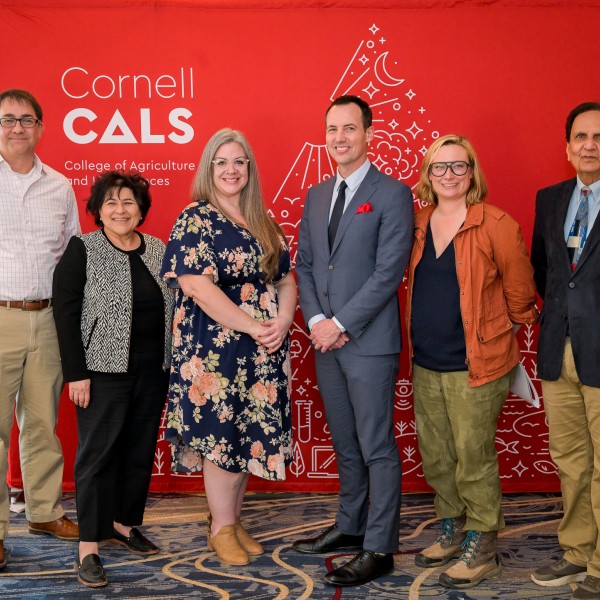In the clinic, not all things are equal. A woman may walk in exhibiting certain symptoms, and her doctor will use general knowledge of those symptoms to come up with a diagnosis.
That general knowledge, however, was largely codified using males as the norm.
“From the days of clinical trials, medicine has been primarily developed for males and was presumed to be the same for females,” said Alon Keinan, associate professor in the Department of Biological Statistics and Computational Biology. “The same extends into the era of studying the genetic basis of complex diseases, where the X chromosome has been either ignored or incorrectly analyzed.”
Men possess an X and a Y chromosome, while women have two X chromosomes.
“From the days of clinical trials, medicine has been primarily developed for males and was presumed to be the same for females.”
-Alon Keinan, associate professor in the Department of Biological Statistics and Computational Biology.
Keinan’s lab focuses on diseases affected by many genes. Known as complex diseases, these include psychiatric disorders, cardiovascular diseases, cancers and autoimmune diseases like Crohn’s disease. Keinan’s focus is on how complex diseases intersect with sex chromosomes, which have been largely ignored in genome-wide association studies.
“Ample evidence suggests that the X chromosome likely plays a crucial role in many complex diseases. First, most complex diseases are different between females and males. For certain diseases such as psychiatric disorders, additional evidence comes from studies of Mendelian disorders, model organisms and the role of X in brain development,” Keinan said.
Analyzing the X chromosome is complicated by many differences from the rest of the genome, some of which are due to its unique inheritance pattern. And since the X chromosome is only about 5 percent of the human genome, researchers conducting genome-wide association studies often ignore it.
“Humans have 23 sets of chromosomes, yet scientific papers almost exclusively discuss only 22 – the sex chromosomes are always missing,” Keinan said. “It was quite obvious for us that it was necessary to correct the situation. It is not about revealing another 5 percent of the picture, but the role of the X chromosome is likely to be unique and shed light on different aspects of the diseases, including differences between females and males. I feel that by ignoring X the research community is yet again unintentionally being collectively sexist.”
Previous methods developed by Keinan to study the X chromosome are being used by dozens of other groups across the country. Keinan and his team are creating new open software for the scientific community that implements these methods and additional developments they and other groups are making.
The initial work – funded by three private foundations and a grant from the National Human Genome Research Institute (NHGRI) found early successes. These included the development of methods for studying the X chromosome and the discovery of genes on the X chromosome that play a part in several diseases, with one of these discoveries later leading to a clinical trial of a new therapeutic strategy for treating Crohn’s disease.
In July, Keinan secured a four-year, $1.6 million grant from NHGRI to continue the research. He intends to shed new light on the difference between male and female genomes within the pathology of diseases, with the goal one day to make it easier for medical practitioners to prescribe medications more accurately and effectively for women.
“Our motivation is making new discoveries,” Keinan said, “and taking steps toward closing the gender disparity in disease diagnosis and treatment.”





